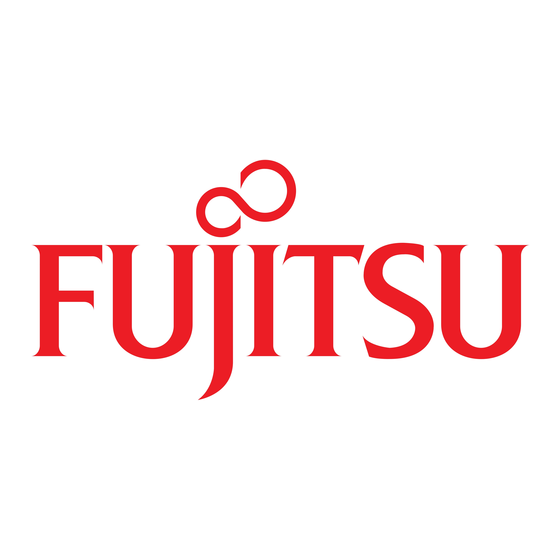

Fujitsu FI-5900C Supplementary Manual
Fujitsu fi-5900c: supplementary guide
Hide thumbs
Also See for FI-5900C:
- Operator's manual (257 pages) ,
- Getting started (30 pages) ,
- Consumable replacement and cleaning instructions (24 pages)
Advertisement
Quick Links
Download this manual
See also:
Operator's Manual
How Document Scanners
Affect Productivity and
Compliance
As enterprise content management (ECM) solutions become more prevalent and
sophisticated, manufacturers of document scanning hardware are responding with
enhanced functionality to meet the demands of technology and higher volume
business processes. The volume of documents scanned continues to increase due to a
number of trends, such as increased adoption of the shared services model (where
multiple business units rely on a centralized corporate facility for a specific business
process such as accounts payable). Concurrently, the processes being managed with
electronic documents are becoming increasingly complex and subject to increasing
regulatory compliance.
to be as a high a priority when choosing a scanner as they are when buying enterprise
software. By understanding the implications of a scanner purchase on operational
efficiency, a positive work environment and organizational risk, you can make a more
informed decision that delivers return on investment (ROI) and supports your
governance, risk and compliance initiatives.
The Role of Document Scanners in Driving Productivity
Document scanning is generally a starting point for other automated business
processes such as workflow, so delays in getting documents into the system can
affect productivity throughout the enterprise. In service bureau environments, paying
workers who are idle due to scanner downtime increases the cost-per-scan and
compromises the already lean margins associated with this kind of business. Achieving
maximum scanner uptime depends on a combination of hardware functionality and
human factors.
Market pressures to increase both productivity and corporate accountability need
Advertisement

Summary of Contents for Fujitsu FI-5900C
- Page 1 Market pressures to increase both productivity and corporate accountability need to be as a high a priority when choosing a scanner as they are when buying enterprise software. By understanding the implications of a scanner purchase on operational...
- Page 2 Because missed staples can cause serious damage to any document scanner, the Fujitsu fi-5900C has a detector that stops a document before it hits the rollers. By identifying these kinds of problems at the beginning of the process, operators aren’t spending as much time troubleshooting the scanner and re-scanning documents.
- Page 3 However, Fujitsu has incorporated many features to make unplanned service calls less likely. For instance, the lamps used in the Fujitsu fi-5900C are rated for the life of the scanner, and the cameras have been sealed to prevent damage from dust.
- Page 4 Statements herein are based on normal operating conditions and are not intended to create any implied warranty of merchantability or fitness for a particular purpose. Fujitsu Computer Products of America, Inc. reserves the right to modify at any time without notice these statements.

